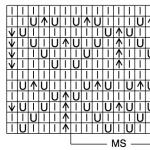Why does a child put his hands and toys in his mouth? How to wean a baby from putting a finger in his mouth How to wean an infant.
After the introduction of ultrasound of pregnant women into widespread practice, it was noticed that the baby, while in the womb, often sucks its finger. This always brings joy to future parents. But when an already grown-up baby continues to constantly put his finger in his mouth, this no longer evokes pleasant feelings. And parents begin to think about how to wean their child from thumb sucking?
Until recently, thumb sucking was definitely considered a bad habit. Therefore, both grandmothers and pediatricians clearly advised parents to wean their child from thumb sucking, using any available methods.
Today, doctors, including Evgeny Komarovsky, believe that it is absolutely useless to fight the instinctive desire to suck in an infant. But this does not mean that no measures need to be taken.
The main reason why a baby pulls a finger (and sometimes other objects, such as the edge of a blanket) into its mouth is an unsatisfied sucking instinct. Therefore, it is quite difficult to wean an infant from thumb sucking.

To get rid of this habit, you need to give the baby the opportunity to satisfy the sucking instinct. Those babies whose mother breastfeeds “on demand” suck their thumb much less often than those who receive food “on a schedule.” And the “champions” for sucking thumbs or other objects are children who are bottle-fed from birth.
So, what reasons make a child suck his thumb?
- Hunger. Many children begin to smack their fingers when they have a desire to eat.
- Emotional discomfort. Don't think that the baby doesn't understand anything. Even if the baby does not perceive words, he perfectly feels the emotional situation. Therefore, if a mother is tense and nervous, her baby will definitely feel it. And the only way for a baby to calm down is to satisfy the sucking instinct.
- Tactile hunger. Children, who are rarely picked up by their mother, show a special “passion” for sucking fists and fingers. A baby needs tactile contact. Massage, stroking, holding in arms is not a whim, but a necessity.
Read also: How can a child survive the separation of his parents? The impact of divorce on a child

Another reason why a child may put a finger or any other objects into his mouth may be the beginning of the teething process. During this period, he really wants to “scratch his gums,” so it is not surprising that he puts into his mouth any object that seems suitable to him.
What is the danger of habit?
So, we figured out the reasons for habit formation. However, despite the fact that these reasons are quite natural, it is possible and necessary to fight the habit, since it certainly cannot be called useful.
- Hygiene. As long as the baby lies in his crib, there are no special problems. But as soon as he begins to “master” the surrounding space, a problem with hygiene arises. An active baby can pick his finger in his own pot, and then calmly put it in his mouth. It’s even more difficult for mothers on walks, because while it’s still possible to keep the apartment clean, it’s impossible outside.
- Damage to the skin on the “working” finger. If the finger is often in the mouth, the skin undergoes maceration (moistening), which greatly reduces local immunity. This can contribute to inflammation. In addition, intense sucking may cause a callus to form on the delicate skin.

- Dental problems. This question is relevant for those children who have already left infancy, but have not said goodbye to the habit of putting their finger in their mouth. For a child 4 years of age and older, such a habit can result in the formation of a malocclusion or crooked teeth.
- Speech therapy problems. Children who cannot give up the habit of thumb sucking for a long time may experience difficulty pronouncing certain sounds.
- Psychological difficulties. For a 5-year-old child, such a habit can result in problems that arise in the children's group. Children of this age may tease and ridicule a peer who constantly sucks his thumb.
How to wean an infant?
Babies who are able to nurse to their fullest from their mother's breasts rarely try to suck their fingers. But for children receiving formula, this need often arises. After all, when breastfeeding, the mother holds the baby at the breast until he releases the nipple, and when feeding from a bottle, he immediately eats the prescribed portion.
Read also: Relationships between children with large age differences. How to establish harmony in the family

If a breastfed baby begins to suck his fingers, then it is worth trying to increase the feeding time. Of course, this is not very convenient for the mother, because the baby receives the portion of food he needs in the first 6-7 minutes of feeding, and then continues to suck for pleasure, sucking out the milk drop by drop. That is, if a baby is kept at the breast for a long time, he will not eat too much, but will completely satisfy his sucking instinct.
What should you do if your child is fed artificial milk substitutes from a bottle? By making a narrower hole in the nipple, you need the baby to make an effort when sucking, and not just allow the mixture to flow into the mouth.
If the measures taken are not successful, then you should take the simplest route and offer the child a pacifier. At the age of 4 months or a little later, silicone rings or other devices can be offered to help the baby more easily tolerate changes in his gums.

Mommies may argue, why is a pacifier better than a finger? However, the pacifier has advantages, and they are significant. Firstly, it is easier to monitor the hygiene of the pacifier, and secondly, it is much easier to wean a child of conscious age from the pacifier than from thumb sucking. After all, you can already come to an agreement with a 2-3 year old child and, in agreement with him, throw away the pacifier or “donate” it to “Lala”. But the finger is always with the child and it is much more difficult to overcome the habit of putting it in the mouth.
How to wean an older child?
If a one-year-old baby continues to suck his thumb, then the issue here is no longer a matter of satisfying the instinct, but of an established habit. A child of this age puts his finger in his mouth to satisfy his emotional and psychological needs, that is, when he is bored or scared and needs to calm down. Many children aged 1-2 years do not suck their thumb during the day, but falling asleep without this “ritual” is difficult for them.
Over time, an infant may develop another bad habit - pulling his hands into his mouth, “sucking” and “chewing” his fingers. Some kids even manage to put their fist in their mouth. A child can hold a pen in his mouth for hours, he can sleep while maintaining this position, and his hand and fingers replace his pacifier in this case (let’s note that the habit of putting their hands in their mouth is especially strong in children who show an increased interest in pacifiers ; these habits can be called relative habits). When talking about the dangers of this habit, we mean several important points:
1) a child who has developed the habit of putting his hands in his mouth constantly, to one degree or another, infects his oral cavity, and therefore his ventricle. It’s not so bad when the habit has developed in a small child who spends all his waking hours in his crib, which is kept clean by the constant cares of his mother. But the problem is if the habit of putting hands in the mouth has developed in an older child who is already actively crawling or mastering walking skills. Since this child crawls and stands on his feet not only in a crib or playpen, but also masters the space of a children's room, apartment, house, we can say that in his arms (even if his mother washes his hands very often) there is a full set of existing the nature of microorganisms. Among these microorganisms there are many pathogenic ones, and there is no doubt that, once in a child’s body, such microorganisms will behave aggressively;
2) when the child’s hand is in his mouth, reflex salivation occurs. A child “sucking” his fingers produces so much saliva that it constantly flows out of the mouth; Therefore, not only the baby’s hands, cheek, neck, but even the collar of his shirt, pillow, and sheet are constantly wet. Since the child loses a lot of fluid with saliva, the water balance in his body is disturbed, and the baby is constantly thirsty. From thirst he becomes restless and capricious. When the mother, due to inexperience, cannot determine the cause of his anxiety and is in no hurry to offer a drink, the child suffering from trouble cries;
3) if the child has developed the habit a long time ago, if the baby has been “sucking” his fist and fingers for more than one month, it cannot be ruled out that his jaws have formed incorrectly. In the future, such a child’s teeth still grow incorrectly, and there may be problems with bite;
4) in a child who has the habit of “sucking” and “chewing” his fingers with his gums, the latter may become bent (the bones of small children are soft and pliable, because they contain a significant amount of organic substances in comparison with the bone tissue of an adult). On the one hand, it is ugly - a child has crooked fingers, on the other hand, this may subsequently adversely affect the acquisition of certain skills (for example, writing skills), as well as the quality of skills;
5) due to the fact that the skin on the child’s cheeks and hands is constantly wet, it macerates (that is, it becomes soaked and wrinkles in a special way. Any mother who has to wash a lot by hand knows how the skin on the hands macerates from prolonged exposure to water). It should be remembered that macerated skin does not provide a sufficiently reliable barrier to infection. At the same time, microorganisms that have penetrated into the microcracks of the macerated skin are activated, and then the baby may develop pustules on the skin, lesions may form in the corners of the mouth, lesions of herpes on the cheek, chin and other places.
A mother who notices a bad habit in time and takes measures to prevent the habit from taking hold will help her child avoid many dangers.
What measures should a mother take to wean her baby from the habit of putting his hands in his mouth?
The measures are as follows:
♦ it is necessary to strengthen control over the child while he is awake. As soon as the mother notices that the baby has pulled the hand into his mouth, she must prevent this. Moreover, the obstacle should be tirelessly and persistently;
♦ be sure to tell your child that it is not good to put his fingers in his mouth. Even though the child has not yet mastered the skill of speech, he already understands much of what his mother tells him;
♦ distract the child from the habit in every possible way. You can successfully distract your baby with communication (the child is always happy to communicate with his beloved mother); you can distract him with a new toy or some simple game that he understands; you can also distract the child’s attention from his hands with a spoonful of delicious fruit puree or a few sips of vegetable, fruit juice, baby tea, etc.;
♦ if the measures suggested above are ineffective, you can put woolen mittens on the child’s hands. Having pulled his hand into his mouth out of habit, the baby will feel the prickly fur with his lips and tongue, and this will be unpleasant for him, and the desire to pull the hand into his mouth will quickly disappear. If the mother resorts to this measure, she must first wash the mittens very thoroughly, rinse them thoroughly and, after drying them, iron them with a hot iron;
♦ use plastic or cardboard cuffs. The method of weaning a child from the habit using cuffs is simple and quite effective. The mother puts the cuffs on the child's arms - on the elbow joints. A baby whose elbow joints are immobilized does not have the ability to bend his arms, which means he does not have the opportunity to direct them into his mouth. At first, the child gets irritated and even angry at the cuffs, but then he gets used to them and automatically breaks the habit.
And now we'll tell you what it is forbidden to do when weaning a child from the bad habit of putting his hands in his mouth:
♦ you cannot scold a child, you cannot shout at him or stamp your feet on him; You can’t scare a child;
♦ you cannot hit the child’s hands or fingers;
♦ do not put mustard or horseradish on your fingers;
♦ you cannot tie the baby’s arms to the body or tie the arms to one another.
Many people's old photo albums are decorated with photographs of toddlers holding a finger or a toy in their mouth. Why then should we be surprised that this trend continues among modern children? No matter how funny it may seem, mothers should know how to behave with their child when he puts his hands or objects in his mouth.
Why does a child put his hands in his mouth?
Why does a child put his hands in his mouth?
This feature is usually characteristic of children who are very attached to a pacifier. When it is canceled, they suck their fingers, sometimes not only their hands, but also their feet. Naturally, this is unhygienic. Microbes enter not only the mouth, but also the stomach, causing pain, poisoning, and stool upset.
Children also put their hands in their mouths because of their curiosity, this is how they learn about the world around them.
In addition to fingers, toys, paper, edges of furniture that he can lick are also tasted.
Thumb sucking is believed to calm the baby. Thanks to this, he falls asleep faster. Therefore, if this tendency occurs only before bedtime, then there is no reason to worry. If a child constantly puts his hands in his mouth, and this happens both during games and during feeding, it is worth analyzing the family situation itself.
Most likely, something is bothering the baby. You should not naively believe that the child is still small and does not understand whether his parents are quarreling. The baby very keenly senses the emotional atmosphere in the family, and when it is tense, he tries to calm down by holding his hand in his mouth.
How to stop children from putting their hands in their mouths
Each child is individual, and therefore needs a special approach. However, there are general rules on how to stop babies from putting everything in their mouth:
1. Switching attention. As soon as the child begins to suck his thumb, immediately distract him with a more interesting activity. For example, tell a nursery rhyme, pick it up, do finger exercises.
2. Demanding care. Observe carefully whether the child puts anything in his mouth. Demandingly explain that this cannot be done. Remarks should be repeated in a firm, but not rude, form.
3. Wool protection. This method works well in the cool season. You can put knitted gloves or mittens on your baby’s hands. The child does not like the prickly fur in his mouth. After trying the woolen hand several times, he can give up this habit. Some parents, by analogy with this method, smear mustard on their child’s hands. However, this method is too cruel for the baby’s stomach. You can stop putting your fingers in your mouth, but you will end up with childhood gastritis, which will cause much more problems.
Children usually taste their hands and surrounding objects, but this habit is usually temporary. With a competent pedagogical approach from parents, you can easily get rid of it. The main thing is patience, care, and attentive attitude towards your baby.






